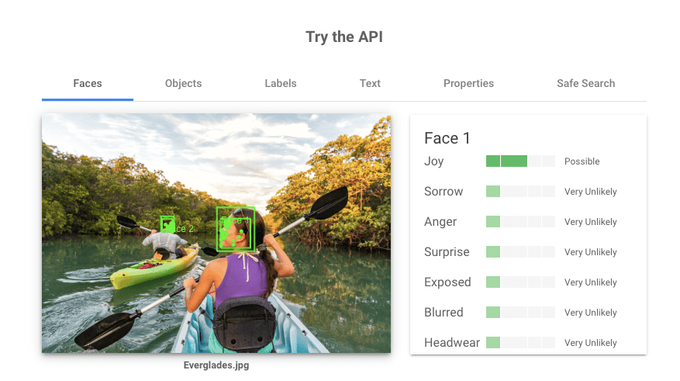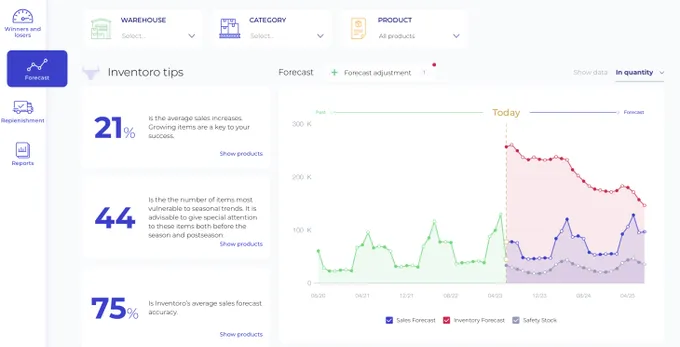Chat GPT Alternatives: 4 AI Technologies to Watch for in 2024
Pick the right AI tool for your eCommerce business with emerging technologies that can enhance the online shopping experience.
Updated November 19, 2024

With the AI market share set to reach $407 billion by 2027, businesses can expect a dramatic increase in innovative tech that will boost their revenue and productivity. From voice search to personalization, the AI tech industry is growing fast, with plenty of exciting new tools to try.
While AI integration can be a fantastic asset to your business, there are areas where the human touch is still needed. Let's discuss which key ChatGPT alternatives you should look out for in 2024, and how you can pick the right one to suit your business goals.
» Find out more about the product presentation and its importance
Meet the Expert
Jameela Ghann is a seasoned online store owner with over a decade of eCommerce experience. Apart from running Alora Boutique, she's also the marketing manager for Fera Product Reviews.
ChatGPT Alternatives for eCommerce
eCommerce businesses that embrace emerging AI technologies can gain a significant competitive advantage. While using ChatGPT in eCommerce has proven its worth, several emerging AI solutions deserve your attention as potential alternatives or complementary tools. Let's explore some of these cutting-edge developments.
1. Google Bard
Bard is a promising AI language model that is gaining traction and attracting significant investment from Google. Its enhanced capabilities could complement or even replace ChatGPT in specific applications.
Google is integrating Bard into its other digital products, such as Gmail, Maps, and YouTube, to expand user interaction and value.
So, users could use Bard to compose emails, get directions on Maps, or find videos on YouTube. And Google is also making Bard available to developers through its AI Platform to foster innovative AI applications in various industries.
2. Google's Vision AI
Google Vision AI is a cloud-based AI tool that helps developers build and deploy computer vision applications. It can identify objects, scenes, and faces in images and videos, and extract text from them.
Google Vision AI can be used to power visual search applications.
Visual search is a type of search that uses images or videos instead of text queries to find information.
This technology is still under development, but it has the potential to revolutionize the way we interact with the internet. Imagine shoppers uploading images or using their cameras to search for items. While it's already being used at big retailers like Amazon, it's set to become more accessible to smaller eCommerce businesses in the near future.
» Is a picture worth 1,000 words? Find out how visual search can help product discovery
3. Voice Commerce and Virtual Assistants
Voice commerce is a rapidly growing trend, and virtual assistants are playing a key role in this growth. As voice recognition technology continues to improve, more and more people are using virtual assistants to shop online. This is because voice commerce offers a number of advantages over traditional text-based shopping, including convenience, accuracy, and naturalness.
If you're an eCommerce business owner, you should consider integrating virtual assistants into your platform through platforms such as Voiceplug.ai. This can help you to attract new customers, improve the customer experience, and increase sales.
4. Inventory management and advanced analytics
AI-driven solutions, similar to ChatGPT, can transform inventory management. Tools such as Inventoro provide insights that help reduce overstock, address sold-out products, and guide customers toward alternatives, optimizing your supply chain and efficiency.
Inventoro connects to your existing eCommerce platform and collects data on your inventory levels, sales history, and customer behavior. It then uses this data to generate insights and recommendations that can help you to improve your inventory management.
Choosing the Right AI Tool
The best way to select the right AI tool for your eCommerce business is to carefully consider your specific needs and challenges. Evaluate the data sources and training methodologies of each tool, as well as its fact-checking capabilities and ethical features. Consider the following factors:
- Data sources and training: Some AI tools are trained on general data, while others are trained on more specialized data. If you need an AI tool that can understand your specific needs, it's important to choose a tool that is trained on the right data.
- Fact-checking: How accurate is the AI tool? Does it offer built-in fact-checking capabilities? Fact-checking is important, especially if you're using the AI tool to generate content for your website or marketing materials.
- Accuracy and contextual understanding: Be aware of the limitations of AI tools and carefully review all AI-generated content.
- Data privacy: Choose an AI tool with robust security measures and compliance with data privacy laws.
- Trust and transparency: Be transparent about your use of AI and provide customers with a way to escalate to human agents.
- Handling complex inquiries: Choose an AI tool that can handle routine tasks and integrate with a CRM system or provide a link to human agents for complex inquiries.
- Scalability and high-traffic periods: Choose a cloud-based AI tool for scalability and high-traffic optimization.
- Budget, support, ease of use, and scalability: Consider your budget, support needs, ease of use, and future scalability needs.
The Future of AI Tech for eCommerce
AI tech is opening up exciting opportunities for you to enhance customer experiences, optimize inventory management, and stay competitive. But perhaps your eCommerce business needs a tailored AI-driven solution rather than a broad large language model chatbot to really specialize your operations.
From personalizing the shopping experience to automating repetitive tasks, AI can help businesses streamline processes and improve their bottom line. AI-powered site search and discovery capabilities can also make it easier for customers to find the products they're looking for, leading to increased sales and conversions.
So, when considering ChatGPT alternatives, take a thoughtful approach to reap the many benefits that AI has to offer.






